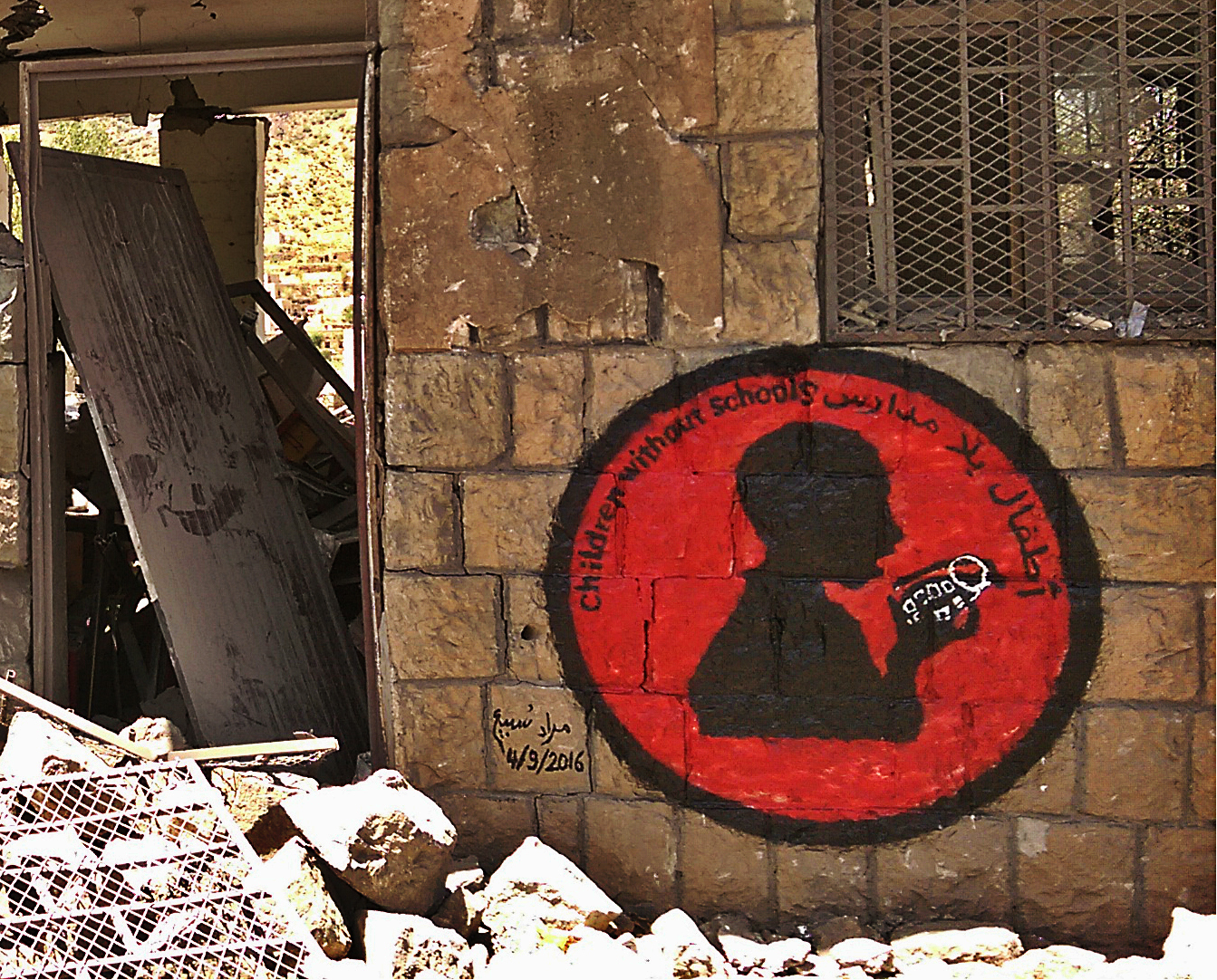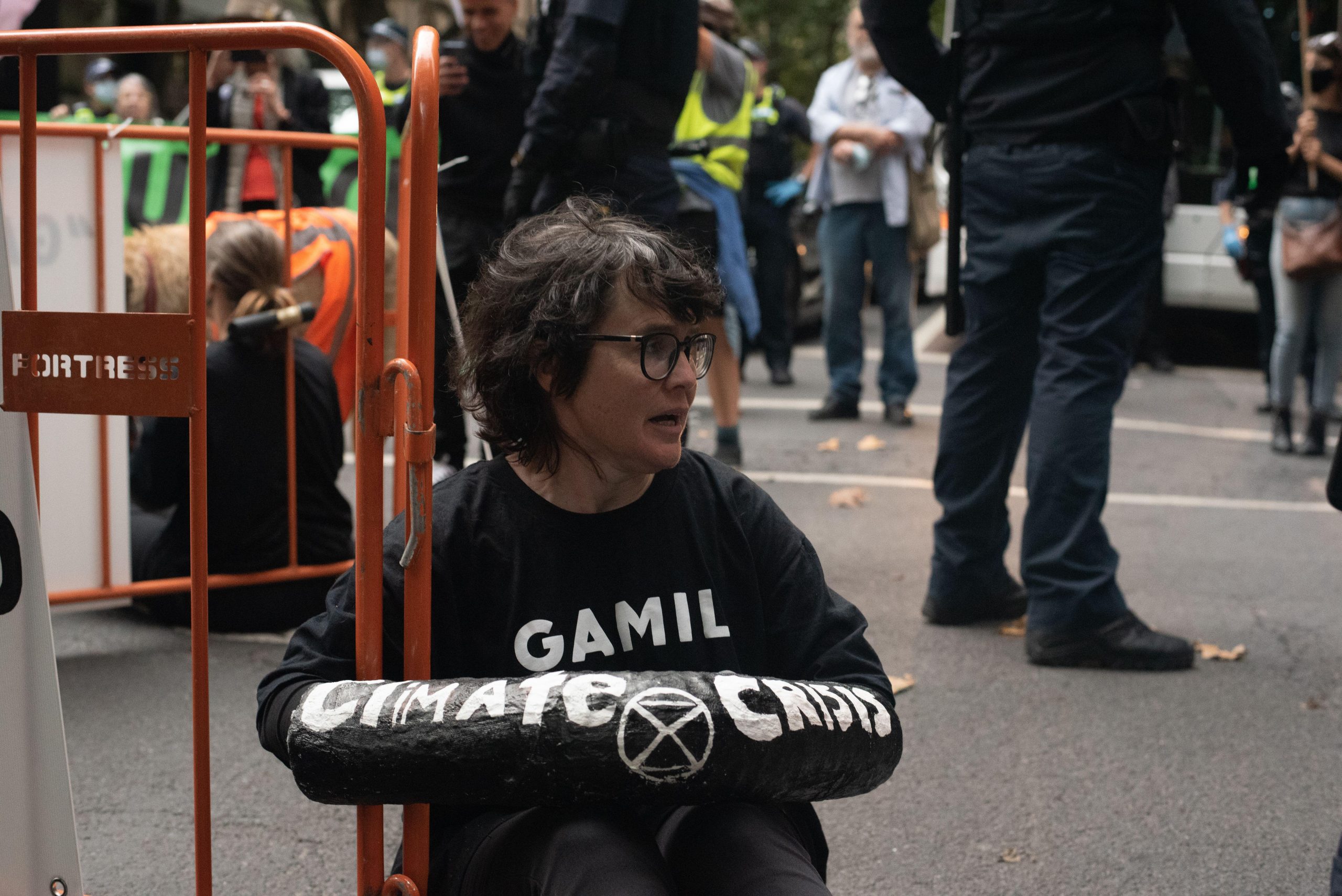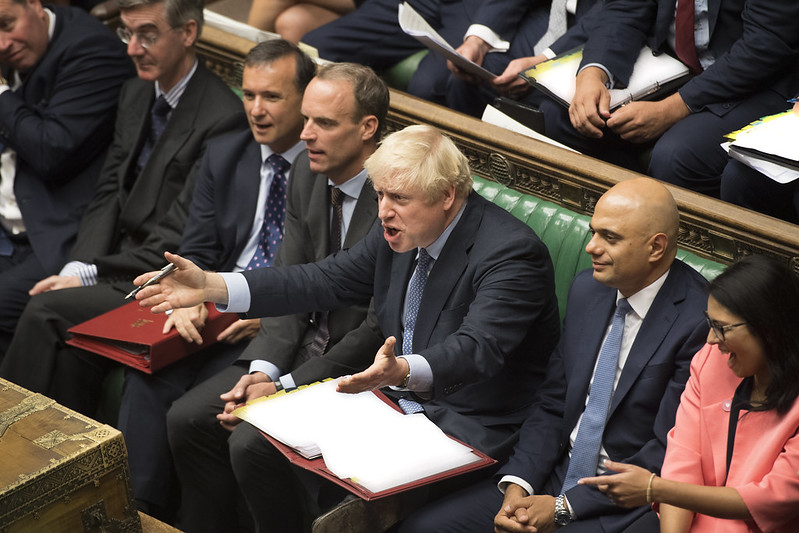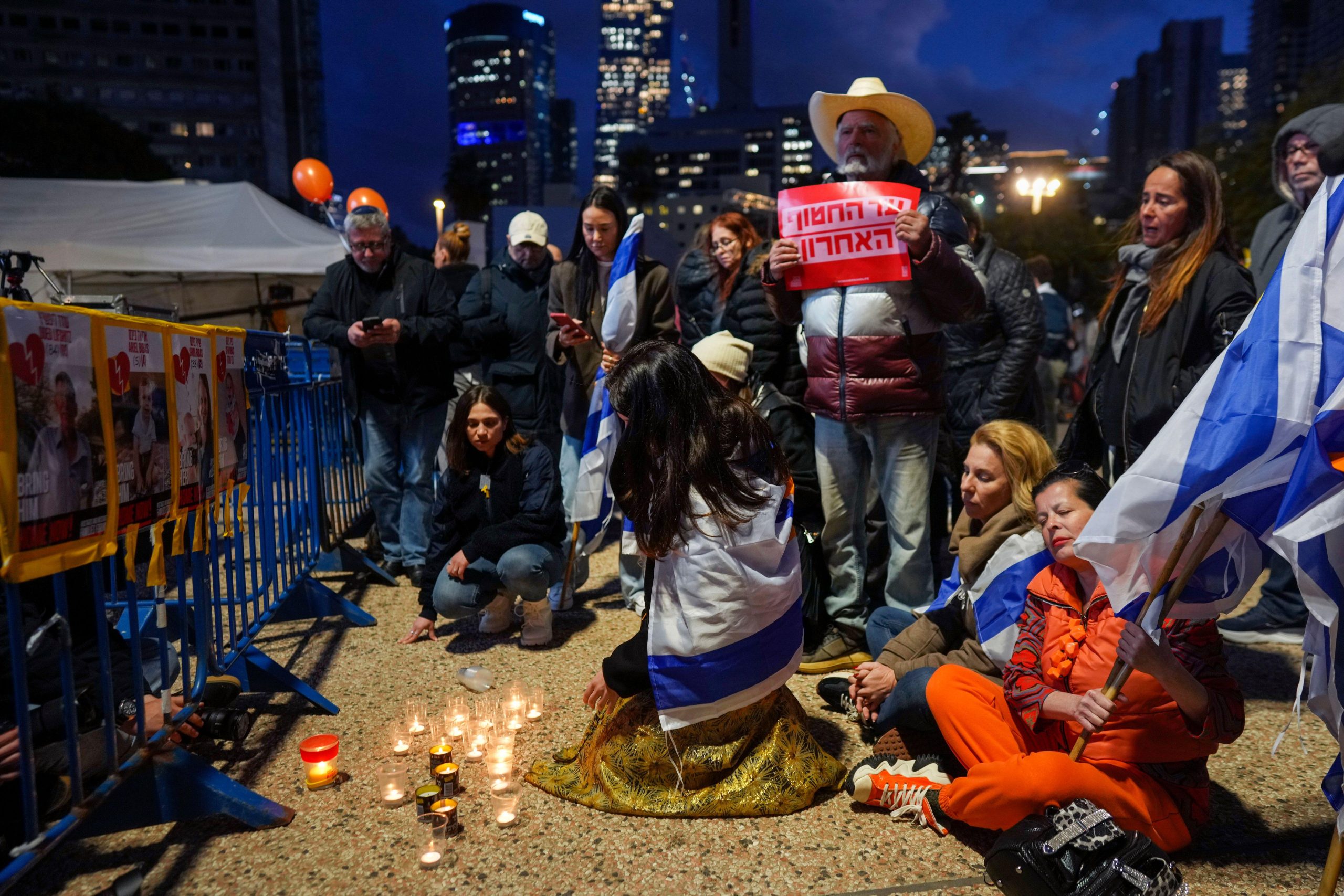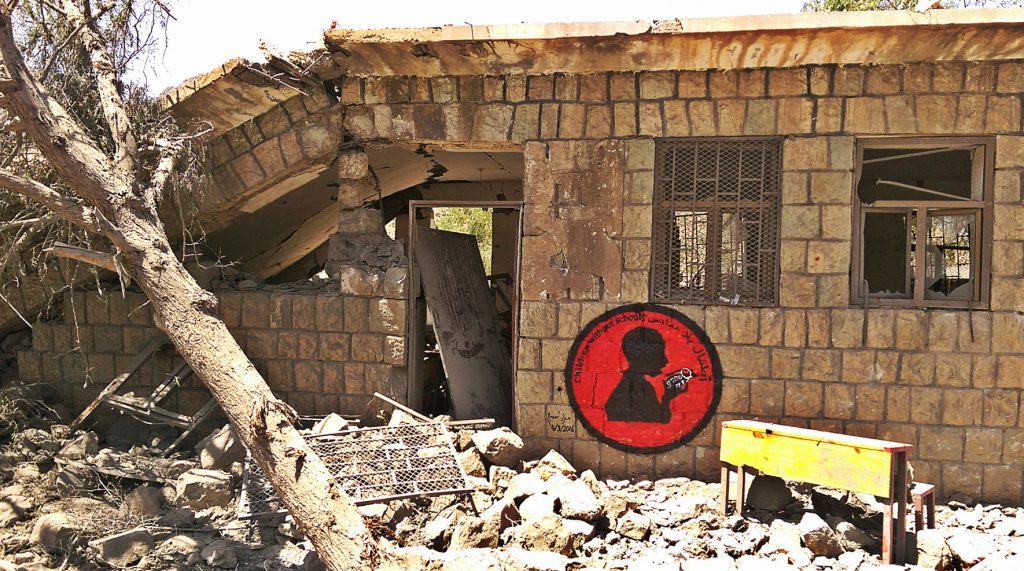
Credit: Ruins campaign. Bani Waleed, September 2016
On 3 September 2016, a group of Houthi rebels convened a meeting at al-Najah School in the al-Haima district of Bani Waleed, a local witness told Murad Subay, street artist and winner of the 2016 Index on Censorship award for arts, that the men entered the school without permission.
“We are not with any of the warring parties – we are caught in the middle,” the witness said.
Soon after, the school was destroyed in an airstrike carried out by the Saudi Arabian-led military coalition, killing one disabled student and adding 1,200 to the more than 3.4 million already forced out of education in the country as over 3,600 schools have been forced to close in the course of the war.
“Can you imagine? These are the soldiers of the wars to come,” Subay told Index. “Without education, these children could become tomorrow’s fighters and tools in the hands of extremists.”
At dawn on 4 September Subay travelled to Bani Waleed to create a mural on what remained of al-Najah.
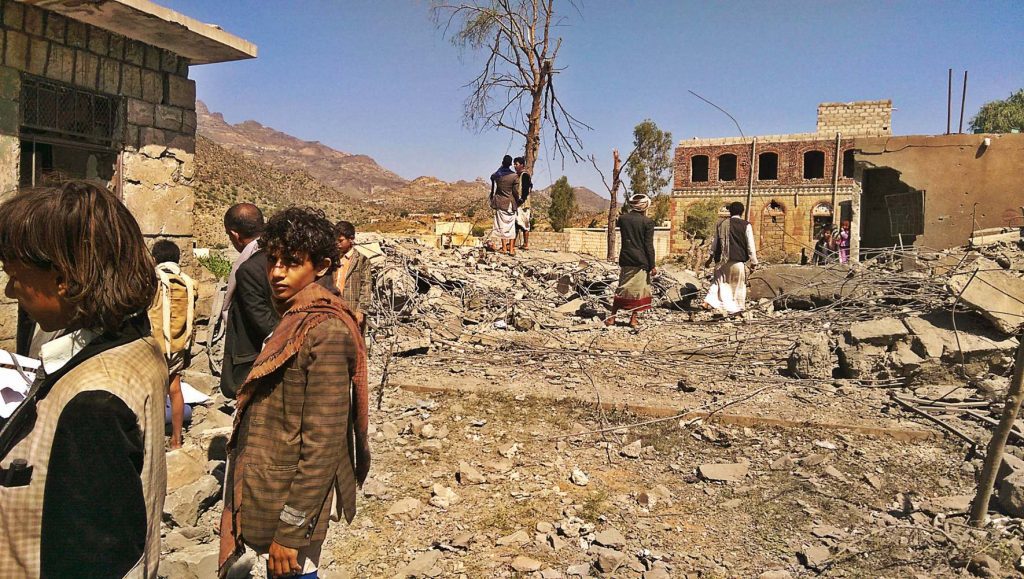
Credit: Ruins campaign. Bani Waleed, September 2016
“When we got there I asked some of the students what they were going to do now that their school was destroyed and some told me they will go to Sanaa while others said they will travel to surrounding villages,” Subay said. “But it will be much more difficult for the 400 girls who attended the school because traditions in Yemen mean they will not be able to travel alone, making it impossible for them to go to other villages to study.”
2016 Freedom of Expression Fellow Murad SubayMurad Subay is the 2016 Index on Censorship Freedom of Expression Arts Award-winner and fellow. His practice involves Yemenis in creating murals that protest the country’s civil war. Read more about Subay’s work. |
Destroying schools isn’t a big deal for the warring parties, the artist added. “Some of the children of those leaders who shout ‘death to America’ are studying at the best universities in the world, including in the USA, while each bombed school in Yemen – especially big ones like al-Haima – will take years to rebuild.”
The situation is made even more difficult in a time of war when resources and building materials are almost impossible to come by. “Even if the West stopped supplying weapons to Saudi Arabia today and patted themselves on the back saying ‘we are doing good’, Saudi Arabia already has enough to wage wars for another 150 years if it wants.”
If there is any hope for peace to prevail and schools, hospitals and other buildings belonging to the people are to be rebuilt, countries like Britain and America should take a step further and tell Saudi Arabia “to show restraint”, Subay said.
“While Saudi Arabia is doing the majority of the destruction, all sides of the war in Yemen must take responsibility.”
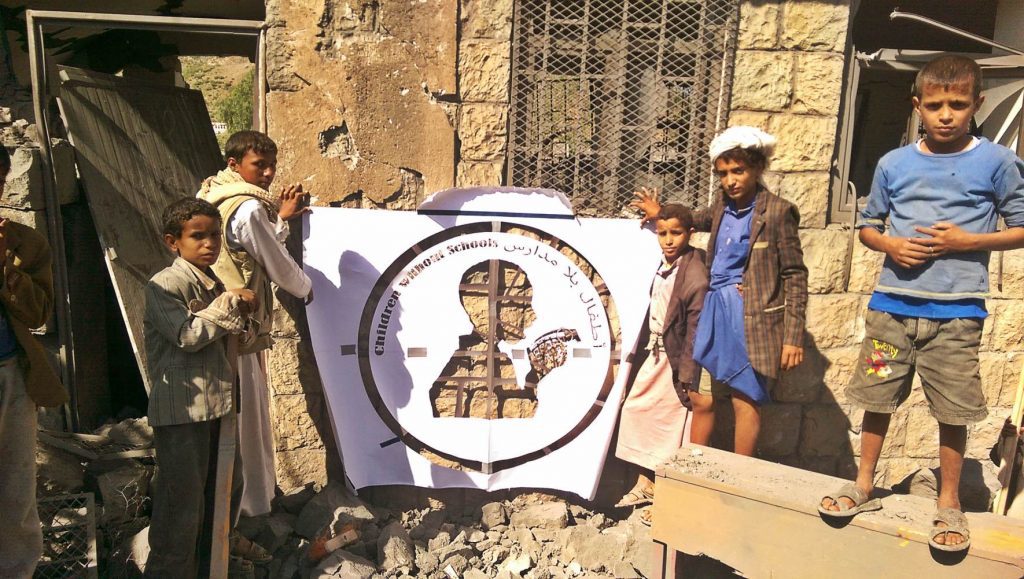
Credit: Ruins campaign. Bani Waleed, September 2016
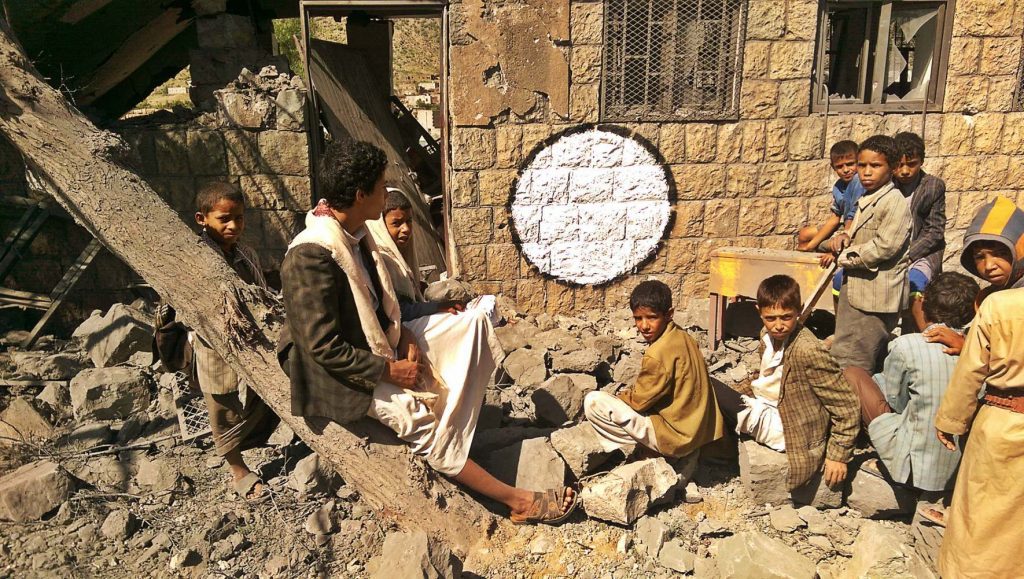
Credit: Ruins campaign. Bani Waleed, September 2016
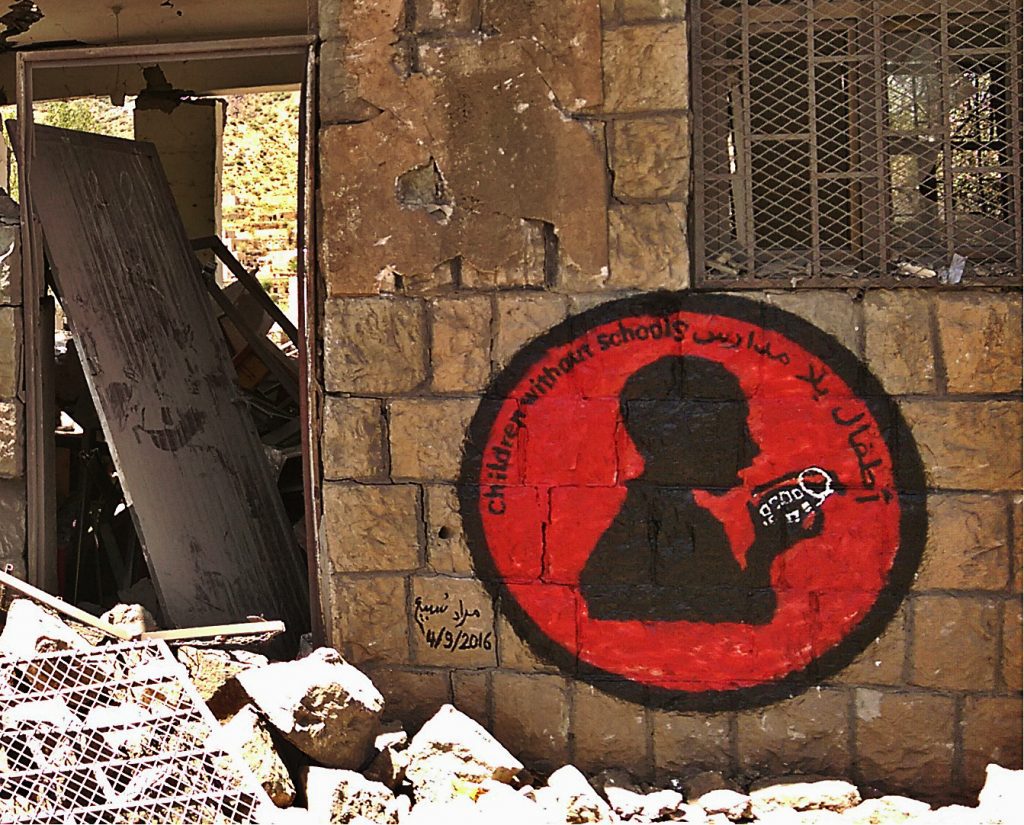
Credit: Ruins campaign. Bani Waleed, September 2016
The mural completed on 4 September depicts a child holding a hand grenade in place of a book, with the words “Children without schools” painted in English and Arabic.
When painting with fellow artists from the Ruins campaign – set up in May 2015 in collaboration with fellow artist Thi Yazen to paint on the walls of buildings damaged by the war – on 25 August, the group were arrested and interrogated by a local militia.
“They asked us to sign a letter with our fingerprints promising that we would not return again without permission,” Subay explains. “I actually did have permission from a local tribal leader but they wouldn’t listen.”
The artists were told if they returned they would be punished.
“My friends were very afraid and some of them said even with permission they would not return,” Subay said. “It was a strange situation for them.”
Subway himself isn’t put off and is already looking forward the next Ruins campaign, wherever that may be.
(2/2)whoever defaced the murals, wrote the word “steadfast” on both of them. #Yemen #Ruins_Campaign pic.twitter.com/3mhCfEulJT
— murad subay (@muradsubay) June 15, 2016
The last time he spoke with Index, Ruins had just completed a series of murals in front of the Central Bank of Yemen to represent the country’s economic collapse. Soon after the murals were finished, Houthi rebels defaced two out of the three works of art, writing “Samidoon” (صامدون), meaning “steadfast”, which is one of their slogans.
Assessing the situation in Yemen and the many different sides of the conflict, Subay said: “It is very difficult. Every night we hear airstrikes here and there, but we go on with our lives.”
“But any day when I can paint is a good one.”
Nominations are now open for 2017 Index on Censorship Freedom of Expression Awards and will remain open until 11 October. You can make yours here.
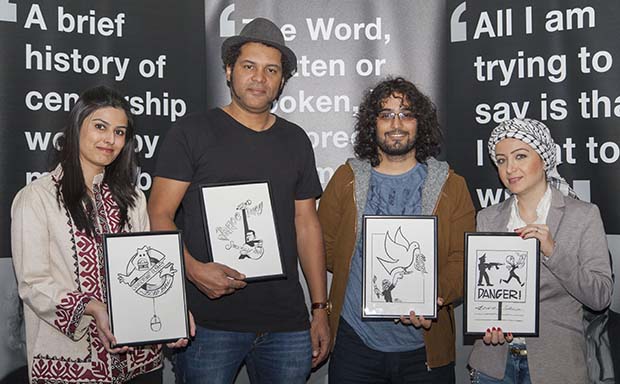
Winners of the 2016 Freedom of Expression Awards: from left, Farieha Aziz of Bolo Bhi (campaigning), Serge Bambara — aka “Smockey” (Music in Exile), Murad Subay (arts), Zaina Erhaim (journalism). GreatFire (digital activism), not pictured, is an anonymous collective. Photo: Sean Gallagher for Index on Censorship

